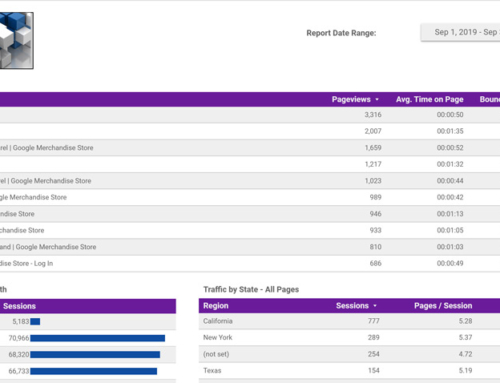
As web designers, we’re often asked which platform is best for building business websites. My answer is unequivocally, “it depends on your organization’s needs and goals.” I stand behind that because there are some instances where an organization would need one platform over another. However, the majority of businesses can and do use WordPress as the backbone of their website. This post explores five reasons why WordPress makes sense for business websites.
- Open source means you can find a plethora of web designers who can work on your website. This means you are not limited on your choice of developers with whom you can work. Some competing platforms are proprietary to particular design firms, which means your business could be locked into working with a limited set of designers because your website platform is not supported by many. This feels like the date you had to go on because your mom suckered you into it. It didn’t feel right in high school and this isn’t a good situation for business owners. There are so many web designers who are well-versed in WordPress that businesses get to choose whom they work with. Better yet, web designers need to work hard to earn your business. That puts more advantage in your corner.
- WordPress powers 30 percent of the Internet, according to its website. The platform’s popularity also means that a whole host of developers are constantly building plugins (tools) to add new functionality to websites. This gives businesses more options and this brings competition to make better plugins for the business world. New and better plugins also allow you to add new features to your website to keep up with customer needs and preferences. That flexibility is a definite benefit for businesses as they evolve.

- More people are surfing the web from mobile devices than desktop or laptop computers. According to StatCounter in an April 2018 article, mobile market share topped the charts as follows:
- 2 percent mobile
- 66 percent desktop
- 14 percent tablet
So why does this matter? WordPress themes and templates are by design responsive, so WordPress websites automatically adjust to the display that they’re being viewed on. For example, if you look at a website at work on your desktop computer and later in the evening decide to pull up that same website on your mobile phone, the layout of the website may look slightly different. In this scenario, the website is adjusting its layout to the smaller screen size of your mobile phone and may even not show large files since that is harder to see on a phone. WordPress makes mobile-friendly websites easier to create and manage. In contrast, some platforms just don’t look or work well on a mobile phone. With mobile viewing taking such a strong prominence, businesses need to think about their websites on mobile first.
- The back-end interface of WordPress is simple. Professionals don’t need much training to update a WordPress website since much of the tools are similar to those in Microsoft Word. Even the interface feels much like Word once you are logged into an actual page. In the example below, I’ve highlighted the word “easiness” and clicked the B icon to bold that word. This is literally the same process users follow in Word. Writing web pages and blogging in WordPress both work this way. As a content management system, WordPress makes it easy to create and edit digital content.

- Your website’s security can be well managed on WordPress. Security issues can arise when websites are not maintained regularly. Regular maintenance allows your organization to make and keep back-up copies of your website, which is helpful if you need to revert to an earlier version of the website. Monitoring the back-end of your site also helps keep plugins up-to-date so your forms and various tools work optimally.
It’s interesting that some of the largest organizations around the world use WordPress. For a glimpse at some of those, check out the 20+ Examples of Big Brands Using WordPress Actively in 2018. Even the White House (www.WhiteHouse.gov) moved its website from Drupal to WordPress and that website gets a ton of visibility and is likely to be a target for security hackers. Regular maintenance keeps your WordPress website secure.
There really are few reasons not to build a business website in WordPress. The flexibility combined with the numerous tools and support available for WordPress make it a good investment for businesses large and small.
You may also find of interest “Why Blogging for Business is Important”.








